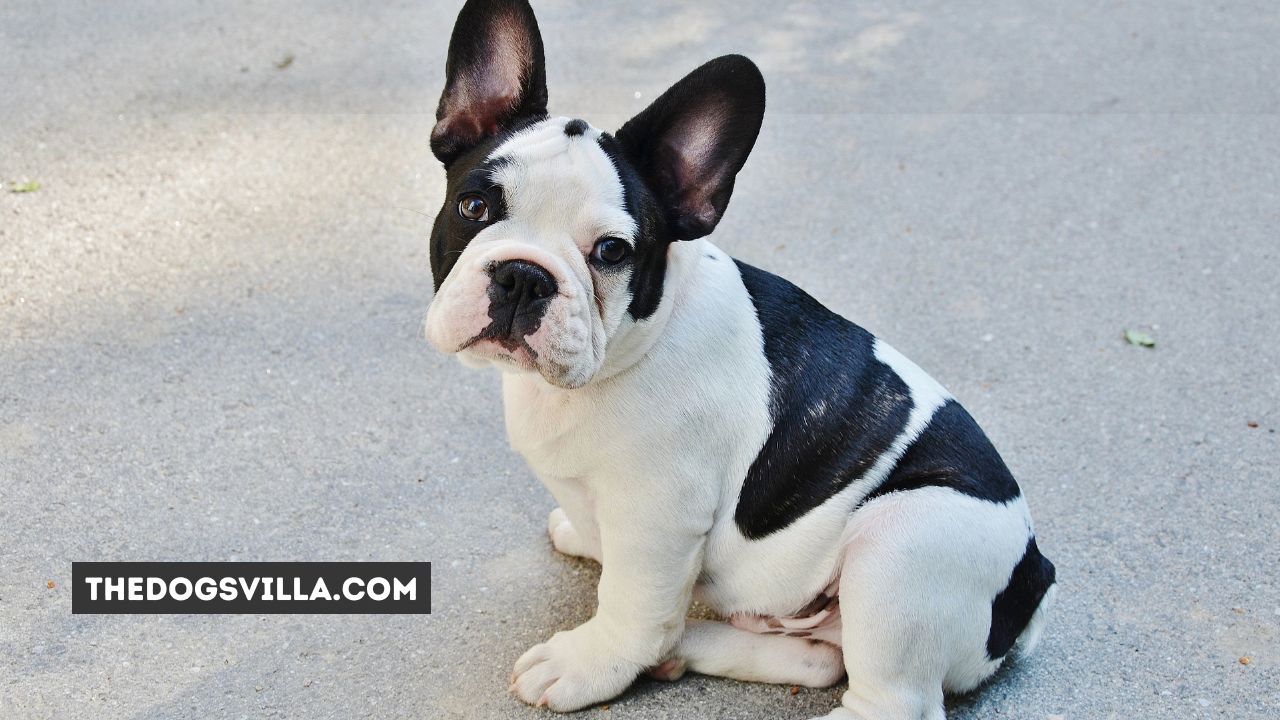French bulldogs are one of the most popular breeds, but they also come with their fair share of health issues. One common problem these dogs face is diarrhea, which can arise suddenly and result in messy accidents around the house. Diarrhea can seriously impact a Frenchie’s health if left untreated as well. As caring bulldog owners, the moment we see symptoms of digestive distress, we immediately wonder what we can give our Frenchies to make them more comfortable while alleviating the diarrhea.
There are a variety of methods we can try at home, as well as professional veterinary therapies for especially troublesome cases of diarrhea. This article explores various treatment options for solving diarrhea in French bulldogs.
Contents
- 1 What Can I Give My French Bulldog For Diarrhea
- 2 At-Home Treatments For Diarrhea
- 3 Common Medications Used For Diarrhea
- 4 Tips For Transitioning Back To A Normal Diet
- 5 Preventing Diarrhea in French Bulldogs
- 5.1 Appropriate Diet
- 5.2 Probiotics
- 5.3 Exercise
- 5.4 Stress Reduction
- 5.5 Regular Vet Visits
- 5.6 1. Fast Your Frenchie
- 5.7 2. Introduce a Bland Diet
- 5.8 3. Choose a Limited Ingredient Dog Food
- 5.9 4. Supplement with Probiotics
- 5.10 5. Try a Pumpkin Purée
- 5.11 6. Choose Dog-Safe Diarrhea Medication
- 5.12 7. Explore Natural Supplements
- 5.13 8. Adjust Food and Water Bowls
- 5.14 9. Identify and Eliminate Allergy Triggers
- 5.15 10. Always Bring a Stool Sample to the Vet
- 6 Frequently Asked Questions
- 7 Conclusion
What Can I Give My French Bulldog For Diarrhea
Before examining treatment options, it is essential to comprehend the causes of diarrhoea in French bulldogs and the circumstances under which a veterinary visit is necessary.
Why Do French Bulldogs Get Diarrhea?
French bulldogs have sensitive digestive systems for a few key reasons:
Breed Predispositions
Due to their short snouts, French bulldogs are more prone to digestive disorders. The shape of their jaw and flat face can influence digestion.
Allergies
French Bulldogs frequently get loose stools or diarrhoea as a result of food allergies or sensitivities. Individuals may acquire allergies to various substances such as chicken, beef, dairy, wheat, soy, lamb, or eggs.
Infections
Bacterial infections from things like contaminated food/water or parasite infections can also lead to GI upset and diarrhea. Puppies are especially prone to infections.
Other Causes
Abrupt food changes, eating something they shouldn’t, medication side effects, swallowing foreign objects, and anxiety can also cause diarrhea in French bulldogs.
When to Visit the Vet For Diarrhea
While diarrhea is common in the breed, there are times when you need to make an appointment with your veterinarian:
- Diarrhea lasts over 48 hours
- You observe blood or mucus in the stool
- Your Frenchie acts extremely sick or lethargic
- Your dog shows signs of dehydration – like loss of appetite, dry gums, or sunken eyes
- Puppy under 12 weeks old has diarrhea over 24 hours – at higher risk of dehydration
Vet visits allow proper diagnosis and treatment tailored to the cause of your French bulldog’s diarrhea.
At-Home Treatments For Diarrhea
In mild cases of diarrhea, there are a several at-home treatment options to try that may help firm up those loose stools. Discuss trying these options with your vet first when possible.
Food and Diet Changes
Since food allergies and sensitivities often contribute to diarrhea in French bulldogs, diet changes can help tremendously.
Withhold Food
Restrict access to food for 12 to 24 hours. Allow only small sips of water so GI tract can rest. After this short fast, transition back to food slowly. If diarrhea returns upon reintroducing food, a bland diet may help.
Bland Diet
A bland meal contains protein and complex carbs, which are easily digestible for your dog. Here’s a recipe to try from the American Kennel Club:
- 1 part boiled, skinless chicken breast
- 3 parts boiled white rice
- Add 1 tsp chicken or vegetable broth per serving
Feed this bland diet in small, frequent meals for a few days. Over several days, slowly reintroduce your dog’s regular food by mixing it in with the bland diet if stools return to normal.
Probiotics
By refilling the gut with “good bacteria,” probiotic pills aid digestion and stool formation. Powders, gels, pastes, and snacks are available. Choose one made for dogs. Give your Frenchie the right dose for its weight.
Natural Remedies
Various natural supplements can alleviate gastrointestinal discomfort while addressing diarrhoea. Prior to commencing any of these natural therapies, it is imperative to consult with your veterinarian.
- Pumpkin – The high fiber content in canned (not fresh) pumpkin can regulate digestion. Give your dog 1 tsp per 10 lbs of body weight 1-2 times daily.
- Ginger – Has anti-inflammatory properties that can settle stomachs. Give dogs under 20 lbs about 1⁄4 tsp minced ginger once daily. Adjust dose up for larger dogs.
- Chamomile – Calms intestinal cramping. Make chamomile tea, let cool, and give dogs under 25 lbs about 1⁄2 cup 2-3 times daily. Adjust doses up for larger pups.
- Slippery Elm – Soothes inflamed bowels. Follow dosing guidelines on the bottle based on your Frenchie’s weight.
These doses serve as guidelines, but read packaging instructions carefully or check with your veterinarian, especially when using with medications.
Common Medications Used For Diarrhea
Sometimes over-the-counter or prescription medications are warranted alongside diet changes to get diarrhea under control. Here are some of the common medications vets recommend:
Antidiarrheal Medication
Intestinal medications like Imodium (loperamide) slow food transit, allowing more nutrients and water absorption. Makes stools firmer. It should be given to your Frenchie at the right dose for its weight under veterinary supervision.
Antibiotics
Bowel-disrupting bacterial infections that result in diarrhoea are treated with antibiotics. Metanidazole and Tylosin are frequent antibiotics. The duration of treatment, dosages, and medications prescribed by your veterinarian will vary.
Anti-parasite Medication
If parasites like giardia are causing your French bulldog’s diarrhea, vets often prescribe Fenbendazole or Metronidazole. Again, exact medications and proper dosing comes from your veterinarian.
IV Fluids
Veterinarians administer intravenous fluid treatment to replenish hydration and restore the balance of electrolytes in cases of acute diarrhoea accompanied by dehydration. In severe cases, hospitalisation may be required to effectively manage diarrhoea.
Tips For Transitioning Back To A Normal Diet
Once your French bulldog’s stools start normalizing after a bout of diarrhea, transitioning their diet should be done gradually over several days:
- On day 1, give 75% bland diet and 25% normal food
- On day 2, give 50% bland diet and 50% normal food
- On day 3 give 25% bland food diet and 75% regular food
- On day 4 you can try giving 100% of your Frenchie’s normal diet
However, everyone’s recovery looks different. Take things slow and give your French bulldog’s stomach time to readjust to their routine diet.
If soft stools return at any point during transition, take a few steps back in this bland to normal food ratio. Call your vet if diarrhea persists or your Frenchie seems under the weather. Remaining on a bland diet for an extended time may also be needed.
Preventing Diarrhea in French Bulldogs
While it’s impossible to avoid the occasional upset stomach, there are things French bulldog owners can do to promote healthy digestion and firm stools:
Appropriate Diet
- Choose a high quality dog food tailored to your Frenchie’s age and size
- Avoid extremely rich foods high in fats which can cause GI upset
- Keep your dog on one consistent diet without a lot of switching around
- Do not overfeed treats and table food
Probiotics
- Give your French bulldog canine probiotic supplements to support good gut health
- Look into dog foods featuring probiotics or prebiotics
Exercise
- Ensure your Frenchie maintains moderate physical activity
- Lack of movement can contribute to constipation and diarrhea episodes
Stress Reduction
- Limit stressors like separation anxiety which can trigger GI problems
- Diffuse calming essential oils like lavender or chamomile in their space
Regular Vet Visits
- Bring stool samples to annually screen for parasites
- Discuss any chronic diarrhea issues with your veterinarian
Through proper care, you can reduce instances of diarrhea and promote good intestinal health in your French bulldog. Some dogs may have chronic conditions warranting long-term management, so always work with your vet!
10 Tips to Solve Diarrhea in French Bulldogs

The sensitive stomachs of French bulldogs make them susceptible to gastrointestinal problems including diarrhoea. An upset stomach, food allergies or intolerances, parasites, bacterial infections, drug side effects, stress, and other factors can all contribute to diarrhoea.
See a veterinarian if your Frenchie exhibits worrying symptoms including lethargy, dehydration, or blood in the stool, or if the diarrhoea lasts more than 48 hours. Home care is often effective for milder, shorter-term cases. Follow these 10 tips to relieve your French bulldog’s diarrhea and digestive discomfort:
1. Fast Your Frenchie
Withhold all food for 12 to 24 hours and only allow a few small sips of water periodically. This “fast” gives your dog’s gastrointestinal system a chance to rest and recover. Once the short fast is over, slowly transition back to bland foods before reintroducing normal diet.
2. Introduce a Bland Diet
After fasting, feed a plain bland diet for a few days. A bland diet is highly digestible, gentle on stomachs, and balances nutrients. An example recipe:
- 1 part boiled, skinless chicken or lean ground meat
- 3 parts boiled white rice
- 1 tsp low-sodium chicken or veggie broth per serving
The carbohydrate and protein combination improves the firmness and consistency of stools. Over several days, gradually transition from bland diet back to normal food.
3. Choose a Limited Ingredient Dog Food
If your pup frequently battles loose stools or allergies, switching to a limited ingredient dog food with fewer components may help identify triggers. Limited ingredient diets use a single protein source and digestible carbs.
4. Supplement with Probiotics
Probiotic supplements introduce gut-friendly microorganisms that assist digestion. They help firm up stools and reduce diarrhea frequency. Look for canine probiotic powders, treats or capsules from pet stores. Follow dosage instructions based on your Frenchie’s weight.
5. Try a Pumpkin Purée
Plain canned (not fresh) pumpkin contains fiber that regulates digestion. The elevated water and nutrition content additionally facilitates optimal hydration levels. Administer approximately 1 teaspoon per 10 pounds of body weight to your French Bulldog, once or twice daily. Incorporate it into their regular diet.
6. Choose Dog-Safe Diarrhea Medication
Over-the-counter dog-safe anti-diarrheal medication like Imodium (loperamide) may be recommended by your vet. Only give medication under veterinary guidance and follow dosing instructions carefully based on your French bulldog’s weight. Too high of doses can be extremely dangerous.
7. Explore Natural Supplements
Several natural supplements can improve gut health and firm up loose stools:
- Slippery Elm Bark – Soothes intestinal inflammation
- Ginger – Settles nauseous stomachs
- Chamomile tea – Eases intestinal cramping
Consult your vet before using alongside medications due to interactions.
8. Adjust Food and Water Bowls
Elevated food and water bowls allow easier eating and drinking for brachycephalic breeds. Elevation takes strain off the neck which improves digestion and may decrease chances of vomiting and diarrhea. Bowls should align with your seated pup’s chest level.
9. Identify and Eliminate Allergy Triggers
Food allergies often cause digestion issues in French bulldogs. Make notes if diarrhea follows consumption of specific proteins like chicken, beef, dairy and wheat. Eliminate suspect ingredients. Discuss specialty diet options with your vet if eliminating foods doesn’t resolve frequent diarrhea.
10. Always Bring a Stool Sample to the Vet
When your Frenchie battles diarrhea or loose stools, bring a fresh stool sample to the vet. Vets examine samples for signs of infection from parasites like giardia or harmful bacteria. Identifying infections allows proper treatment through medication. Annual fecal tests catch issues early.
Here’s a table summarizing the top 10 tips for solving diarrhea in French bulldogs:
| Tip | Details |
|---|---|
| 1. Fast Your Frenchie | Withhold food 12-24 hours allowing GI rest |
| 2. Introduce a Bland Diet | Feed boiled chicken or ground meat + rice |
| 3. Choose a Limited Ingredient Dog Food | Fewer ingredients identify triggers |
| 4. Supplement with Probiotics | Improves digestion and stool firmness |
| 5. Try a Pumpkin Purée | Fiber regulates digestion |
| 6. Choose Dog-Safe Diarrhea Medication | Follow veterinary guidelines carefully |
| 7. Explore Natural Supplements | Soothe intestines with ginger, chamomile, etc |
| 8. Adjust Food and Water Bowls | Elevate to chest level to aid digestion |
| 9. Identify and Eliminate Allergy Triggers | Remove suspect ingredients from diet |
| 10. Always Bring a Stool Sample to the Vet | Checks for infections requiring treatment |
This comprehensive game plan outlining dietary changes, supplements, medication options and lifestyle adjustments provides a multitude of paths to pursue firmer stools and relief for your French bulldog. Work closely with your veterinarian to pinpoint optimal solutions if diarrhea persists despite efforts. Stay vigilant for dehydration and signs warranting urgent vet care as well! With attentive care and patience identifying triggers, this too shall pass for your gassy Frenchie!
Frequently Asked Questions
Are rice and chicken enough to treat diarrhea at home?
Feeding boiled chicken breast and white rice (the bland diet) helps give your Frenchie’s stomach a chance to rest and recover. When should I make an emergency vet visit for diarrhea?
If your French bulldog has highly bloody diarrhoea, severe vomiting/diarrhea lasting over 48 hours, high fever, weakness, wailing in pain, or bloating, take them to an emergency vet. Over-24-hour diarrhoea in puppies requires emergency vet care.
How much Pedialyte can I give a French bulldog for diarrhea?
Pedialyte should not be given in excess of 15 mL (1 tablespoon) for every 5 pounds of body weight every 8-12 hours, according to most veterinarians. To determine the correct dosage of Pedialyte for your French bulldog, consult your veterinarian.
What are signs my French bulldog’s diarrhea is improving?
Signs diarrhea is resolving include:
- Decreased frequency of bowel movements
- Improved stool consistency and less liquidity
- Decreased mucus or blood in stool
- Normal color stools – not grey, yellow or black
- Solid energy levels and normal appetite
Also watch that your Frenchie isn’t showing any signs of dehydration like lethargy, dry gums, weakness or sunken eyes. Improvement eating bland diet and firming up of stools marks real progress. Contact your vet if abnormal symptoms return after near resolution.
Conclusion
Diarrhea in French bulldogs can definitely cause distress, but hopefully now you have a better grasp on treatment options and when to seek veterinary help. Early intervention with diet changes, natural remedies or medications often helps minimize misery from diarrhea episodes. Stay vigilant about contact with new dogs, proper feeding guidelines and signs of dehydration too!
With attentive care from a loving Frenchie parent and a trusted vet, bouts of diarrhea don’t have to derail adventures with your favorite flat-faced companion! Here’s to many happy days ahead enjoying improved intestinal health with your French bulldog.
More Helpful Article That Might Help You
How Much American Bulldog Cost in 2024

